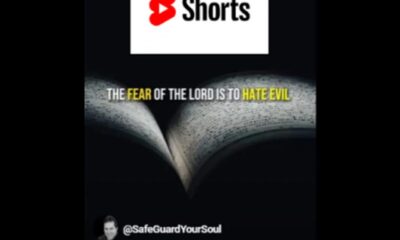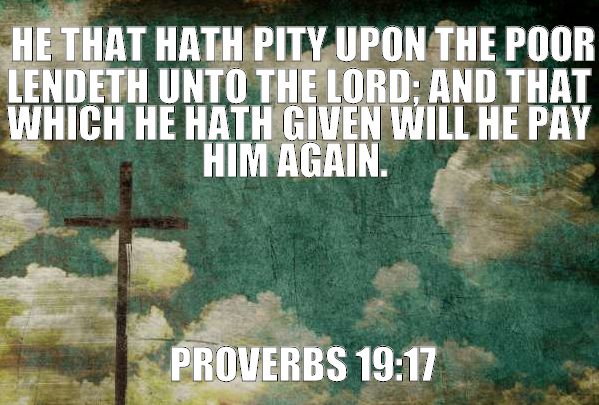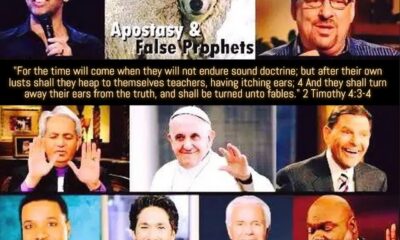From “Answers To Your Bible Version Questions” by David W. Daniels
Question: Gehenna is not hell, is it? It was a valley where outcasts, thieves and infected people where thrown when they died. The Bible refers to “Gehenna” as the place of death and pain. The word “hell”, as you so often use, where eternal pain and fire awaits is actually “Gehenna”. If you have read a bible written before 1400, you will notice a very important thing: “HELL” is missing. Instead it says “Gehenna”. There is no fire breathing eternal pain demon hell!! In fact YOU are committing a sin here. Telling people, or lying to people about hell, when you should know about “Gehenna”. There is no hell. Only the valley of “Gehenna”. A graveyard!!
Answer: The word “Gehenna” is properly translated “hell” in the King James Bible. And actually, except for three known Bibles1, every Bible says “hell,” not the untranslated word “Gehenna”.
What does “Gehenna” mean?
“Gehenna” originally referred to the Valley of Hinnom by Jerusalem. It was the place of horrible idolatry. So when the Hebrews finally came back to Jerusalem after 70 years of Babylonian Captivity (about 605-535/6 BC), they resolved never to use the Valley of Hinnom for idolatry again. Instead, they burned their trash there, and it became a burning valley of waste.
But we know that Jesus and the apostles didn’t mean to refer to a garbage dump. Here’s why. There are certain statements in the Bible that tell us clearly about “Gehenna”, translated “hell” in the King James Bible. Notice these verses.
Both body and soul are destroyed there
“And fear not them which kill the body, but are not able to kill the soul: but rather fear him which is able to destroy both soul and body in hell” (Matthew 10:28). No power on earth can destroy a soul. The soul is a part of a person that exists beyond physical death (Revelation 20:4). “Gehenna” has to be a place to destroy both the body and the soul.
A person goes there after death
“And I say unto you my friends, Be not afraid of them that kill the body, and after that have no more that they can do. But I will forewarn you whom ye shall fear: Fear him, which after he hath killed hath power to cast into hell; yea, I say unto you, Fear him” (Luke 12:4-5). It is no threat to throw a dead body into a grave, a junkyard or a furnace. But God has power to cast a person, whose body is dead, into “Gehenna.” There is only one reason to fear the person that can throw you into Gehenna: you must be aware that you are cast there. So Gehenna is hell, the place where the unrighteous dead are cast.
Its fire shall never be quenched
“And if thy hand offend thee, cut it off: it is better for thee to enter into life maimed, than having two hands to go into hell, into the fire that never shall be quenched:” (Mark 9:43, 45). “Gehenna” is said to be a “fire that shall never be quenched”. The earth and the works therein shall all be burned up (2 Peter 3:10), but they will be replaced with a new earth wherein righteousness dwells (2 Peter 3:13; Revelation 21:1). So “Gehenna” could not mean an earthly place, since all fires shall be quenched on earth. But hell’s fire shall never be quenched. It is clear: Gehenna is hell, not a trash dump.
Even though the word “Gehenna” comes from the Valley of Hinnom, simply rendering it as “garbage dump” or “valley of waste disposal” or “burning garbage” could not be an accurate translations, because that’s not what Jesus and the apostles meant when they used the word. It meant “the place where people go when they die.” That’s what we mean when we say “hell”.
You wrote:
“If you have read a bible written before 1400. You will notice a very important thing, HELL is missing. Instead it says Gehenna.”
You mentioned Bibles before 1400. The only known Bible in English from before then is the Wycliffe Bible of 1380. Does it use “hell” or “Gehenna”? Let’s find out!
The term “Gehenna” is found in Greek in these verses of the Bible:
Matthew 5:22,29-30; 10:28; 18:9; 23:15,33; Mark 9:43,45,47; Lu 12:5; Jas 3:6
Here they are in the Wycliffe version:
Matthew 5:22 But Y seie to you, that ech man that is wrooth to his brothir, schal be gilti to doom; and he that seith to his brother, Fy! schal be gilti to the counseil; but he that seith, Fool, schal be gilti to the fier of helle.
Matthew 5:29-30 That if thi riyt iye sclaundre thee, pulle hym out, and caste fro thee; for it spedith to thee, that oon of thi membris perische, than that al thi bodi go in to helle. And if thi riyt hond sclaundre thee, kitte hym aweye, and caste fro thee; for it spedith to thee that oon of thi membris perische, than that al thi bodi go in to helle.
Matthew 10:28 And nyle ye drede hem that sleen the bodi; for thei moun not sle the soule; but rather drede ye hym, that mai lese bothe soule and bodi in to helle.
Matthew 18:9 And if thin iye sclaundre thee, pulle it out, and caste awei fro thee. It is betere to thee with oon iye to entre in to lijf, thanne hauynge tweyn iyen to be sent in to the fier of helle.
Matthew 23:15 Wo to you, scribis and Farisees, ypocritis, that goon aboute the see and the loond, to make o prosilite; and whanne he is maad, ye maken hym a sone of helle, double more than ye ben.
Matthew 23:33 Ye eddris, and eddris briddis, hou schulen ye fle fro the doom of helle?
Mark 9:43 (9:42) And if thin hoond sclaundre thee, kitte it awey; it is betere to thee to entre feble in to lijf, than haue two hondis, and go in to helle, in to fier that neuer schal be quenchid,
Mark 9:45 (9:44) And if thi foote sclaundre thee, kitte it of; it is betere to thee to entre crokid in to euerlastynge lijf, than haue twei feet, and be sent in helle of fier, that neuer schal be quenchid,
Mark 9:47 (9:46) That if thin iye sclaundre thee, cast it out; it is betere to thee to entre gogil iyed in to the reume of God, than haue twey iyen, and be sent in to helle of fier, where the worme of hem dieth not,
Luke 12:5 But Y schal schewe to you, whom ye schulen drede; drede ye hym, that aftir he hath slayn, he hath power to sende in to helle. And so Y seie to you, drede ye hym.
James 3:6 And oure tunge is fier, the vniuersite of wickidnesse. The tunge is ordeyned in oure membris, which defoulith al the bodi; and it is enflawmed of helle, and enflawmeth the wheel of oure birthe.
So you see that “Gehenna” is not the term used in English at all! Not until Young’s Literal Translation in the late 1800s, followed by the Catholic New American Bible of 1970 was the untranslated “Gehenna” put in. Look at foreign translations. The Spanish Reina-Valera of 1602-1989 rightly says “el infierno” and the Portuguese Corrigida Fiel says “do inferno”, both of which mean “Hell” as we in English use the term. “Hell” is an understandable word. “Gehenna” is not.
And “hell” accurately translates the meaning of the word “Gehenna.” “Gehenna” is not a translation; it is just a transliteration (translating letters, but not meaning). We find that first in the perverted Roman Catholic Latin Vulgate (400s AD), which was forced on the people of Europe as the only legal Bible for over a thousand years. Not until the Reformation of the 1500s were God’s actual words translated into the language of the people. And every one of them was careful to translate “Gehenna” into an English word with the same meaning. All but two of the English Bibles, from at least 1380 onward (that’s all I’ve checked on this so far), translate “Gehenna” into the understandable word “hell.”2 That’s what a good Bible should do.
WHO NEEDS HELL?
“Hell” is an uncomfortable word. Everybody knows what it means. But new Bible versions, wherever possible, try to remove the word “hell” from the Scriptures and replace it with “sheol” or “gehenna” or “hades” or “Tartarus.” In doing so, they rob the Scriptures of the force of the word “hell.”
“Hades” has a big pagan meaning that is completely divorced from the Bible. “Sheol” is a Hebrew word without any meaning at all to an ordinary reader. Have you ever heard people say they don’t want to “go to gehenna?”
No. But people do say, “I don’t want to go to hell.” Many people’s salvation is based on that …they didn’t want to go to hell. They may not understand the love of God, but they understand clearly that they do not want to go to hell. The revival that happened under the ministry of Jonathan Edwards began with a sermon called “Sinners in the hands of an angry God.” His listeners felt themselves slipping out of their seats and their feet getting singed by the fires of hell when he preached, and revival broke out.
We need a Bible with a lot of hell in it. We need to know where we are not going. The whole purpose of evangelism is to save people from hell. We need a Bible that doesn’t try to sanitize it with a nicer sounding word that people don’t understand. That forceful warning word, “hell,” is found in the King James Bible.
I hope this has helped you understand the King James Bible a little more, and why it is the preserved words of God in English.
May God bless you as you read and understand His words.
Footnotes
- Specifically, the Roman Catholic Latin Vulgate (400s AD), Young’s Literal Translation (1862 & 1898) and the Roman Catholic New American Bible (1970-1991)
- This list includes the 1380 Wycliffe, the 1534 & 1535 Tyndale, the Cranmer (Great) Bible of 1539 & 1540, the Geneva Bibles of 1557, 1560 and 1599, the Bishop’s Bible of 1568 & 1602, even the Jesuit Rheims New Testament of 1582, and almost all Bibles from 1881 to the present. Except for Young’s Literal and the New American Bible, they all say “hell” (spelled “hel,” “helle” or “hell”), not “Gehenna”.
Is Hell Forever or Temporal? | More on Hell here
“Many shall be Purified, and made White, and Tried” Daniel 12:10 [podcast]
Articles
Rich in Faith [podcast]
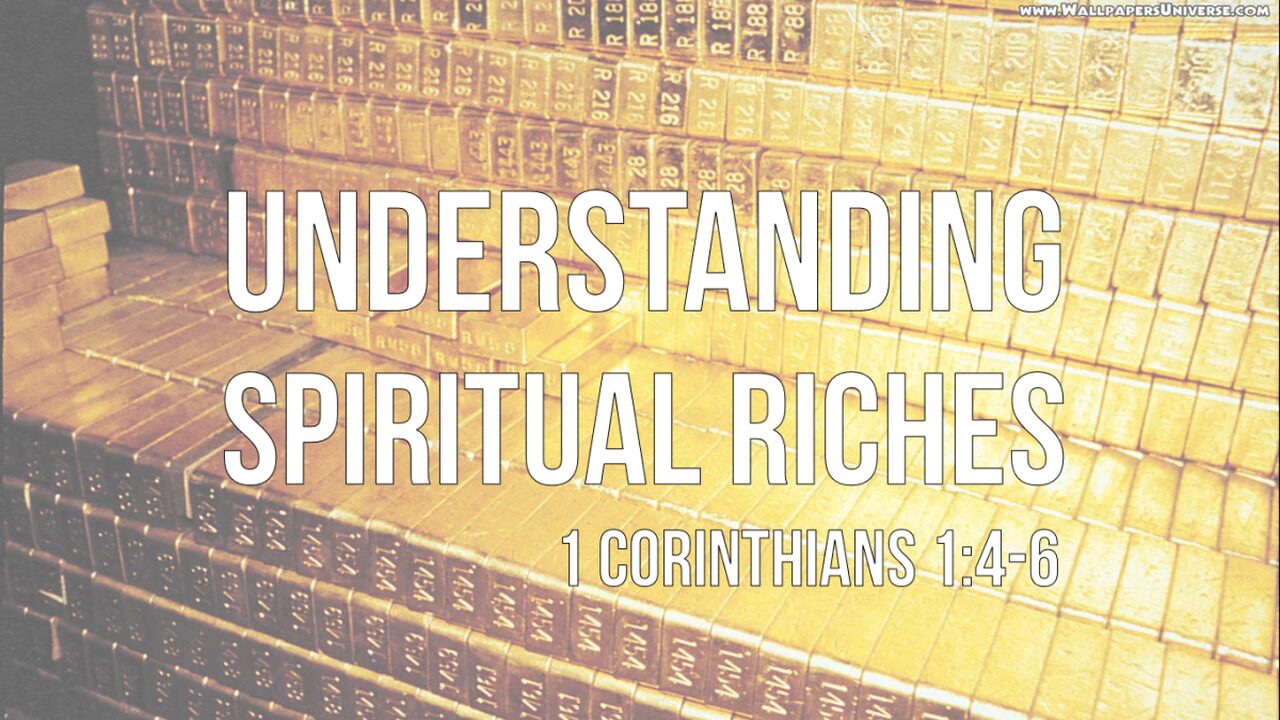
“Them that Love Him”
——WHAT one temporarily has in this fleeting world or doesn’t have, has NOTHING to do with that person’s spiritual state. This is what Jesus taught: “Take heed, and beware of covetousness: for a man’s life consisteth not in the abundance of the things which he possesseth.” (Luke 12:15) In fact James says:
“HEARKEN, MY BELOVED BRETHREN, HATH NOT GOD CHOSEN THE POOR OF THIS WORLD RICH IN FAITH, AND HEIRS OF THE KINGDOM WHICH HE HATH PROMISED TO THEM THAT LOVE HIM?” JAMES 2:5
James says God chooses those for His eternal kingdom “that love him,” namely “the poor of this world.” We are justified by “faith” and not by what we do or do not temporarily possess in this fleeting life.
IF in your mind you rate people by what they have or don’t have in this fleeting sinful world, you are deeply deceived and in utter need of repentance and the washing of water by the Word of God. You are carnally minded (Romans 8:5-6).
Regrettably, it seems that most people professing to be following Christ, the One who gave all, are not the least bit concerned if their brother or sister has a need. God have mercy upon us and grant us repentance in Jesus’ Name! Are these people truly saved?
“Hereby perceive we the love of God, because he laid down his life for us: and we ought to lay down our lives for the brethren. 17 But whoso hath this world’s good, and seeth his brother have need, and shutteth up his bowels of compassion from him, how dwelleth the love of God in him? 18 My little children, let us not love in word, neither in tongue; but in deed and in truth. 19 And hereby we know that we are of the truth, and shall assure our hearts before him.” 1 John 3:16-19
“If we are in Jesus we have the unsearchable riches of Christ (Ephesians 3:8). Unfathomable (in our small minds), infinite wealth and spiritual blessings! Endless mercy, grace, and forgiveness. That is inexhaustible! Why do we need any worldly riches that will rot and corrupt our hearts!? Lay up in your hearts God’s riches! Which are eternal!” Karen Cochran
Some have tens of thousands in the bank and could care less to find out if a sister or brother has a need. The Bible assures us that they are not saved. If you have even a little to give and don’t, it’s because you simply have chosen not to know and abide in Christ.
“What doth it profit, my brethren, though a man say he hath faith, and have not works? can faith save him? 15 If a brother or sister be naked, and destitute of daily food, 16 And one of you say unto them, Depart in peace, be ye warmed and filled; notwithstanding ye give them not those things which are needful to the body; what doth it profit? 17 Even so faith, if it hath not works, is dead, being alone.” James 2:14-17
The financial institutions and their salesmen are vying for your money. They want your money to invest so that you and they earn a financial gain in this life. Christians in need, orphans, and Gospel workers are also available to invest in. To help them is to invest in the LORD’s kingdom and be repaid dividends for eternity. Oh, and your heart will follow where you choose to place your money. Jesus says “Lay not up for yourselves treasures upon earth, where moth and rust doth corrupt, and where thieves break through and steal: 20 But lay up for yourselves treasures in heaven, where neither moth nor rust doth corrupt, and where thieves do not break through nor steal: 21 For where your treasure is, there will your heart be also.” (Matthew 6:19-21)
PRAYER: Holy Father, please break me and make me Your authentic follower. Jesus I love You. Let me walk as You walked, live as You lived, love as You love. Bless this life You gave to be truly crucified with You – dead, buried, and raised up – a vessel of honor for Your glory! In Jesus’ name.
Let’s Grow Together! Sign up here to begin receiving the Moments with Our Master email devotional that is sure to help you grow in His grace and in the knowledge of our LORD and Savior Jesus Christ (2 Pet. 1:2; 3:18). It’s sent out for the edification of the body of Christ. Sign Up HERE.
Support | STORE | Podcasts | Jail/Prison Ministry | Mexico Mission here | All Ministry Updates | More on Assurance here | Because You Care Page | The Greatest of these is Charity | Be Ready in the Morning [podcast] | The Sure Mercies of David [podcast] | That Repentance and Remission of Sins should be Preached [podcast] | At His Feet | Knowing God | The Cross Life | 100’s of Christ-centered Scripture-rich Podcasts | Christology = the Study of Christ


Abiding
Safety in Wise Counsel [podcast]
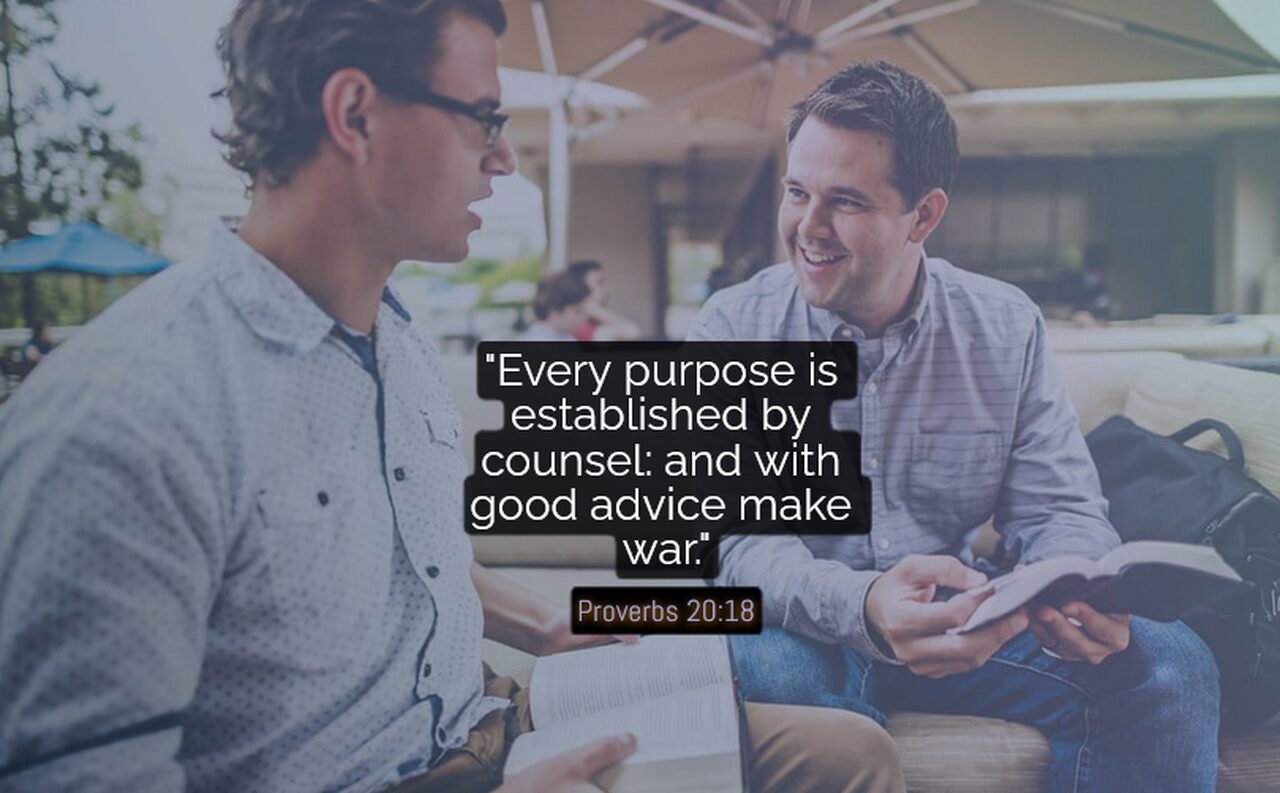
“Every purpose is established by counsel: and with good advice make war.” Proverbs 20:18
“The steps of a good man are ordered by the Lord: and he delighteth in his way.” Psalms 37:23
“So teach us to number our days, that we may apply our hearts unto wisdom.” Psalms 90:12
“Safety” in wise counsel from God’s wisdom, Word, and including at times with the help of His beloved saints.
“Where no counsel is, the people fall: but in the multitude of counsellors there is safety.” Proverbs 11:14
“The horse is prepared against the day of battle: but safety is of the LORD.” Proverbs 21:31
“For by wise counsel thou shalt make thy war: and in multitude of counsellors there is safety.” Proverbs 24:6
Caprice means a sudden and unaccountable change of mood or behavior.
“Who is a wise man and endued with knowledge among you? let him shew out of a good conversation his works with meekness of wisdom. 14 But if ye have bitter envying and strife in your hearts, glory not, and lie not against the truth. 15 This wisdom descendeth not from above, but is earthly, sensual, devilish. 16 For where envying and strife is, there is confusion and every evil work. 17 But the wisdom that is from above is first pure, then peaceable, gentle, and easy to be intreated, full of mercy and good fruits, without partiality, and without hypocrisy. 18 And the fruit of righteousness is sown in peace of them that make peace.” James 3:13-18
Support | STORE | Podcasts | Jail/Prison Ministry | Mexico Mission here | All Ministry Updates | 100’s of Christ-centered Podcasts | Bible Books Narrated | Bible Study Helps | The Book of James Narrated [podcast] | The Book of Revelation Narrated [podcast] | Colossians Overview [podcast]


Articles
“Let Brotherly Love Continue” [podcast]
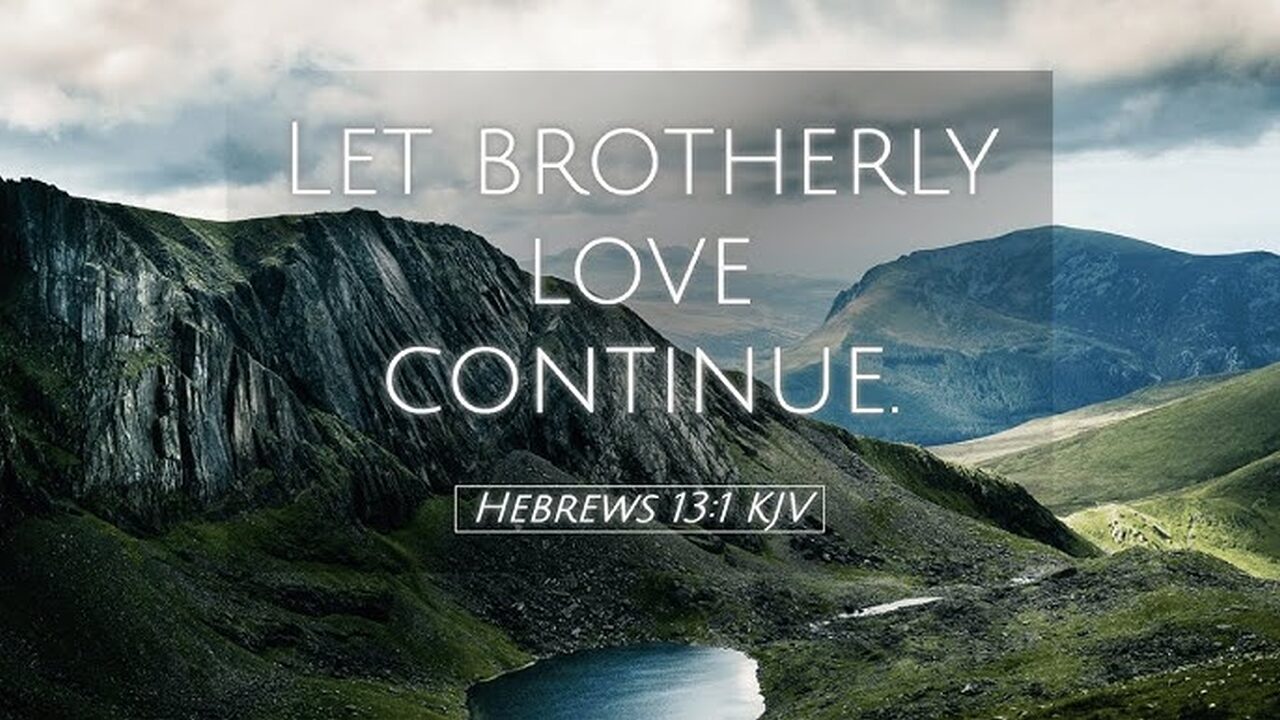
“Let Brotherly Love Continue.” Hebrews 13:1
“And walk in love, as Christ also hath loved us, and hath given himself for us an offering and a sacrifice to God for a sweetsmelling savour.” Ephesians 5:2
1 John 4
God Is Love
“7 Beloved, let us love one another: for love is of God; and every one that loveth is born of God, and knoweth God.
8 He that loveth not knoweth not God; for God is love.
9 In this was manifested the love of God toward us, because that God sent his only begotten Son into the world, that we might live through him.
10 Herein is love, not that we loved God, but that he loved us, and sent his Son to be the propitiation for our sins.
11 Beloved, if God so loved us, we ought also to love one another.
12 No man hath seen God at any time. If we love one another, God dwelleth in us, and his love is perfected in us.
13 Hereby know we that we dwell in him, and he in us, because he hath given us of his Spirit.
14 And we have seen and do testify that the Father sent the Son to be the Saviour of the world.
15 Whosoever shall confess that Jesus is the Son of God, God dwelleth in him, and he in God.
16 And we have known and believed the love that God hath to us. God is love; and he that dwelleth in love dwelleth in God, and God in him.
17 Herein is our love made perfect, that we may have boldness in the day of judgment: because as he is, so are we in this world.
18 There is no fear in love; but perfect love casteth out fear: because fear hath torment. He that feareth is not made perfect in love.
19 We love him, because he first loved us.
20 If a man say, I love God, and hateth his brother, he is a liar: for he that loveth not his brother whom he hath seen, how can he love God whom he hath not seen?
21 And this commandment have we from him, That he who loveth God love his brother also.”
1 Corinthians 13
“Though I speak with the tongues of men and of angels, and have not charity, I am become as sounding brass, or a tinkling cymbal. 2 And though I have the gift of prophecy, and understand all mysteries, and all knowledge; and though I have all faith, so that I could remove mountains, and have not charity, I am nothing. 3 And though I bestow all my goods to feed the poor, and though I give my body to be burned, and have not charity, it profiteth me nothing. 4 Charity suffereth long, and is kind; charity envieth not; charity vaunteth not itself, is not puffed up, 5 Doth not behave itself unseemly, seeketh not her own, is not easily provoked, thinketh no evil; 6 Rejoiceth not in iniquity, but rejoiceth in the truth; 7 Beareth all things, believeth all things, hopeth all things, endureth all things. 8 Charity never faileth: but whether there be prophecies, they shall fail; whether there be tongues, they shall cease; whether there be knowledge, it shall vanish away.”
Support | STORE | Podcasts | Jail/Prison Ministry | Mexico Mission here | All Ministry Updates | Because You Care Page | The Greatest of these is Charity | Be Ready in the Morning [podcast] | The Sure Mercies of David [podcast] | That Repentance and Remission of Sins should be Preached [podcast] | At His Feet | Prepared to be Used of God | Walking with Jesus on His Stated Terms – the Cross | Fasting and Prayer | The Old Man Must be Put Down [podcast] | The 5 Sins That Keep God’s People Out of Their Promised Land [podcast] | What Did Paul Mean by “I Keep Under My Body”? [podcast] | “Jesus the Author and Finisher of our Faith” [podcast] | A Living Sacrifice unto God [podcast] | Departing from Hell Beneath | Prayer



 America12 months ago
America12 months agoThe Drugging of America: The Pharmakeia Sorcery Deception [podcast]

 Articles2 years ago
Articles2 years agoChildren being Rescued in Tunnels: Happening Now – UPDATE!

 Articles8 years ago
Articles8 years agoSelf-Examination in Preparation for the Lord’s Return

 Apostasy2 years ago
Apostasy2 years agoSHOCKING List of False Prophets Most Believe are True









